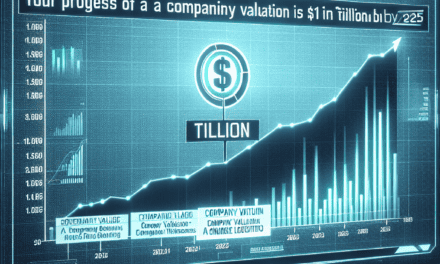“From Disruption to Billions: Sean Parker’s Digital Odyssey”
Introduction
Sean Parker, a name synonymous with innovation and disruption in the tech industry, has carved a remarkable path from his early days as a teenage hacker to becoming a billionaire entrepreneur. Best known for co-founding Napster, the revolutionary file-sharing service that forever changed the music industry, Parker’s journey is a testament to his visionary prowess and relentless drive. His involvement with Facebook as its first president further cemented his status as a pivotal figure in Silicon Valley, helping to shape the social media landscape that dominates today’s digital world. With a net worth soaring to $3 billion, Parker’s story is one of audacious ambition, strategic foresight, and an unyielding quest to redefine the boundaries of technology and connectivity.
The Rise of Napster: Sean Parker’s Early Success
Sean Parker’s journey to a $3 billion net worth is a testament to his visionary approach and entrepreneurial spirit, which first came to prominence with the rise of Napster. In the late 1990s, the music industry was on the cusp of a digital revolution, and Parker, alongside his co-founder Shawn Fanning, was at the forefront of this transformation. Napster, a peer-to-peer file-sharing service, was launched in 1999 and quickly became a cultural phenomenon. It allowed users to share and download music files for free, disrupting the traditional music distribution model and challenging the industry’s status quo.
The inception of Napster was rooted in Parker’s deep-seated interest in technology and his desire to innovate. As a teenager, Parker was already immersed in the world of programming and hacking, which laid the foundation for his future endeavors. His collaboration with Fanning was serendipitous, as both shared a passion for technology and a vision for democratizing access to music. Napster’s rapid growth was fueled by its user-friendly interface and the burgeoning internet culture, which embraced the idea of free and accessible content.
However, Napster’s success was not without its challenges. The platform quickly attracted the ire of the music industry, leading to a series of high-profile lawsuits. Major record labels and artists, including Metallica and Dr. Dre, sued Napster for copyright infringement, arguing that the service was facilitating the illegal distribution of their music. These legal battles highlighted the tension between innovation and intellectual property rights, a theme that would recur throughout Parker’s career.
Despite the legal challenges, Napster’s impact on the music industry was undeniable. It paved the way for the development of legal digital music services, such as iTunes and Spotify, fundamentally altering how music was consumed and distributed. Although Napster was eventually shut down in 2001, its legacy endured, and Parker’s role in this digital revolution cemented his reputation as a disruptive innovator.
Transitioning from Napster, Parker continued to leverage his expertise and vision in the tech industry. His subsequent ventures, including his involvement with Facebook, further solidified his status as a key player in the digital age. Parker’s early success with Napster provided him with the experience and credibility needed to navigate the complex landscape of Silicon Valley. His ability to identify and capitalize on emerging trends became a hallmark of his career, contributing significantly to his substantial net worth.
In conclusion, Sean Parker’s early success with Napster was a pivotal moment in his journey to a $3 billion net worth. The rise of Napster not only showcased Parker’s innovative spirit but also set the stage for his future achievements in the tech industry. By challenging the traditional music distribution model, Parker demonstrated the power of technology to disrupt established norms and create new opportunities. His story serves as an inspiration to aspiring entrepreneurs, illustrating the potential rewards of embracing innovation and taking calculated risks. As Parker’s career evolved, his early experiences with Napster continued to inform his approach to business, underscoring the enduring impact of his initial foray into the world of digital music.
Sean Parker’s Role in Revolutionizing the Music Industry
Sean Parker’s role in revolutionizing the music industry is a testament to his visionary approach and entrepreneurial spirit. As a co-founder of Napster, Parker was instrumental in transforming the way people accessed and shared music. In the late 1990s, the music industry was dominated by physical sales, with CDs and vinyl records being the primary mediums for music distribution. However, Parker, along with his partner Shawn Fanning, saw an opportunity to leverage the burgeoning internet to create a platform that would allow users to share music files freely. This vision materialized in the form of Napster, a peer-to-peer file-sharing service that quickly gained popularity among music enthusiasts.
Napster’s impact on the music industry was both profound and controversial. On one hand, it democratized access to music, allowing users to discover and share songs without the constraints of traditional distribution channels. This newfound accessibility was a boon for music lovers, who could now explore a vast array of genres and artists with unprecedented ease. On the other hand, Napster’s model of free music sharing posed a significant threat to the established music industry, which relied heavily on sales revenue. Consequently, Napster faced numerous legal challenges from record labels and artists, leading to its eventual shutdown in 2001.
Despite its short-lived existence, Napster’s influence on the music industry was undeniable. It paved the way for the development of legal digital music platforms, such as iTunes and Spotify, which have since become the dominant modes of music consumption. By challenging the status quo, Parker and Fanning forced the industry to adapt to the digital age, ultimately benefiting both consumers and artists. This shift towards digital distribution has allowed artists to reach a global audience more easily and has provided consumers with more convenient and affordable access to music.
Following his success with Napster, Sean Parker continued to make significant contributions to the tech industry. His involvement with Facebook, where he served as the company’s first president, further solidified his reputation as a forward-thinking entrepreneur. Parker’s ability to recognize and capitalize on emerging trends has been a key factor in his journey to a $3 billion net worth. His knack for identifying opportunities and his willingness to take risks have consistently set him apart from his peers.
Moreover, Parker’s influence extends beyond the realms of music and social media. He has been actively involved in various philanthropic endeavors, focusing on issues such as cancer research, public health, and civic engagement. Through the Parker Foundation, he has committed substantial resources to initiatives aimed at improving the quality of life for people around the world. This commitment to giving back underscores Parker’s belief in using his wealth and influence to effect positive change.
In conclusion, Sean Parker’s role in revolutionizing the music industry is a reflection of his innovative mindset and his ability to challenge conventional norms. From Napster to Facebook, his journey has been marked by a series of bold ventures that have not only shaped the digital landscape but have also contributed to his substantial net worth. As he continues to explore new opportunities and invest in transformative projects, Parker’s legacy as a pioneer in the tech industry remains firmly intact.
From Napster to Facebook: A Strategic Pivot
Sean Parker’s journey from the co-founding of Napster to his pivotal role in Facebook’s early days is a testament to his strategic acumen and visionary foresight. His path, marked by both innovation and controversy, illustrates how a series of calculated decisions can lead to monumental success. Parker’s story begins in the late 1990s when, as a teenager, he co-founded Napster with Shawn Fanning. This peer-to-peer file-sharing service revolutionized the music industry by allowing users to share and download music for free. Although Napster faced significant legal challenges from the music industry, which ultimately led to its shutdown, it laid the groundwork for the digital music revolution and established Parker as a formidable figure in the tech world.
Transitioning from Napster, Parker’s next significant venture was Plaxo, an online address book and social networking service. While Plaxo did not achieve the same level of notoriety as Napster, it provided Parker with valuable experience in managing a tech startup and navigating the complexities of Silicon Valley. This experience would prove invaluable when he encountered Facebook. In 2004, Parker met Mark Zuckerberg and Eduardo Saverin, the co-founders of Facebook, and quickly recognized the platform’s potential to transform social interaction on a global scale. His involvement with Facebook marked a strategic pivot in his career, as he transitioned from music sharing to social networking.
Parker’s role in Facebook’s early development was crucial. He became the company’s first president and was instrumental in securing its initial funding, which helped Facebook expand beyond its original college-based network. His vision for Facebook extended beyond a simple social networking site; he saw it as a platform that could redefine how people connect and communicate. Parker’s influence was also evident in the decision to drop “The” from “The Facebook,” simplifying the brand and making it more accessible. His strategic insights and ability to attract investors were key factors in Facebook’s rapid growth and eventual dominance in the social media landscape.
Despite his success, Parker’s journey was not without challenges. His tenure at Facebook was cut short in 2005 due to legal issues related to drug possession, which led to his resignation. However, this setback did not deter him from continuing to innovate and invest in new ventures. Parker’s ability to pivot and adapt to changing circumstances is a hallmark of his career. After leaving Facebook, he became involved in various philanthropic efforts and continued to invest in promising startups, further solidifying his reputation as a savvy entrepreneur and investor.
Parker’s journey from Napster to Facebook and beyond highlights the importance of strategic pivots in achieving long-term success. His ability to recognize emerging trends and capitalize on them has been a driving force behind his impressive $3 billion net worth. By continuously adapting to the evolving tech landscape and leveraging his expertise, Parker has maintained his status as a key player in the industry. His story serves as an inspiration to aspiring entrepreneurs, demonstrating that with vision, resilience, and strategic thinking, it is possible to navigate the challenges of the tech world and achieve remarkable success.
The Impact of Sean Parker on Facebook’s Growth

Sean Parker’s influence on Facebook’s growth is a testament to his visionary approach and strategic acumen, which have been instrumental in shaping the trajectory of the social media giant. As one of the early architects of the digital revolution, Parker’s journey from co-founding Napster to becoming a pivotal figure in Facebook’s expansion is marked by a series of insightful decisions and innovative strategies. His involvement with Facebook began in 2004, when he met Mark Zuckerberg and Eduardo Saverin, the co-founders of the then-fledgling social network. Recognizing the platform’s potential, Parker quickly became an advisor and later the first president of Facebook, bringing with him a wealth of experience and a network of influential contacts.
Parker’s impact on Facebook was multifaceted, beginning with his role in securing crucial early investments. His connections in Silicon Valley proved invaluable, as he introduced Zuckerberg to Peter Thiel, co-founder of PayPal, who became Facebook’s first major investor. This initial funding was critical in providing the resources needed for Facebook to expand its infrastructure and user base. Furthermore, Parker’s strategic vision helped shape Facebook’s brand identity and user experience. He advocated for dropping the “The” from “The Facebook,” simplifying the name to what we know today, which contributed to a more streamlined and memorable brand.
In addition to branding, Parker’s understanding of the social networking landscape allowed him to guide Facebook’s growth strategy effectively. He emphasized the importance of user engagement and network effects, encouraging the team to focus on expanding the platform’s reach among college students before opening it to a broader audience. This approach helped Facebook build a strong, loyal user base, setting the stage for its eventual global dominance. Parker also played a crucial role in navigating the competitive landscape, advising Zuckerberg on how to differentiate Facebook from other social networks like MySpace and Friendster. His insights into user behavior and platform dynamics were instrumental in positioning Facebook as a leader in the social media space.
Moreover, Parker’s influence extended to Facebook’s corporate culture and organizational structure. He advocated for a flat hierarchy and a culture of innovation, encouraging employees to experiment and take risks. This environment fostered creativity and agility, enabling Facebook to adapt quickly to changing market conditions and technological advancements. Parker’s emphasis on innovation and user-centric design has had a lasting impact on Facebook’s development, contributing to its ability to remain at the forefront of the social media industry.
Despite his departure from Facebook in 2005, Parker’s legacy continues to shape the company’s growth and success. His early contributions laid the foundation for Facebook’s expansion into a global phenomenon, and his strategic insights have left an indelible mark on the company’s trajectory. As Facebook evolved into a multi-billion-dollar enterprise, Parker’s influence remained evident in its continued focus on user engagement, innovation, and strategic partnerships.
In conclusion, Sean Parker’s journey from Napster to Facebook is a remarkable story of vision, innovation, and strategic foresight. His impact on Facebook’s growth is a testament to his ability to recognize and capitalize on emerging opportunities, guiding the company through its formative years and setting the stage for its future success. As a result, Parker’s contributions have not only shaped Facebook’s development but have also played a significant role in his own journey to a $3 billion net worth, underscoring the profound impact of his work in the digital age.
Sean Parker’s Investment Strategies and Ventures
Sean Parker’s journey from a teenage hacker to a billionaire entrepreneur is a testament to his keen eye for innovation and his strategic investment acumen. As one of the most influential figures in the tech industry, Parker’s investment strategies and ventures have played a pivotal role in shaping his impressive $3 billion net worth. His approach to investing is characterized by a combination of foresight, risk-taking, and a deep understanding of emerging technologies.
Parker’s initial foray into the tech world began with Napster, the revolutionary peer-to-peer file-sharing service he co-founded in 1999. Although Napster faced legal challenges and eventually shut down, it laid the groundwork for Parker’s future endeavors by establishing him as a visionary in the digital space. This early experience taught him the importance of being at the forefront of technological disruption, a lesson he carried into his subsequent ventures.
Transitioning from Napster, Parker’s next significant move was his involvement with Facebook. In 2004, he became the social media giant’s first president, recognizing its potential to transform how people connect and communicate. His strategic insights and guidance were instrumental in Facebook’s early growth, helping to secure crucial investments and shape its business model. This experience not only solidified Parker’s reputation as a savvy investor but also provided him with substantial financial returns as Facebook’s value skyrocketed.
Beyond Facebook, Parker’s investment portfolio is diverse and reflects his ability to identify promising opportunities across various sectors. He has invested in numerous startups, often focusing on companies that leverage technology to address societal challenges. For instance, Parker was an early investor in Spotify, the music streaming service that has redefined how people access and enjoy music. His involvement with Spotify underscores his continued interest in the music industry and his belief in the power of digital platforms to democratize content distribution.
Moreover, Parker’s investment strategies extend to the realm of philanthropy, where he applies his entrepreneurial mindset to drive impactful change. In 2015, he launched the Parker Foundation with a $600 million endowment, focusing on life sciences, global public health, and civic engagement. Through this foundation, Parker invests in innovative research and initiatives that have the potential to address pressing global issues. This philanthropic approach not only reflects his commitment to social responsibility but also highlights his belief in the transformative power of strategic investments.
In addition to his philanthropic efforts, Parker has ventured into the political arena, advocating for policy changes that align with his vision for a more equitable society. His involvement in political initiatives demonstrates his understanding of the broader implications of technology and his desire to influence systemic change through strategic investments.
In conclusion, Sean Parker’s investment strategies and ventures are characterized by a forward-thinking approach that combines technological innovation with a commitment to societal impact. From his early days with Napster to his pivotal role in Facebook’s success, Parker has consistently demonstrated an ability to identify and capitalize on emerging trends. His diverse investment portfolio, which spans technology, philanthropy, and politics, reflects a holistic understanding of the interconnectedness of these domains. As Parker continues to navigate the ever-evolving landscape of technology and innovation, his journey serves as an inspiring example of how strategic investments can drive both personal success and meaningful societal change.
Philanthropy and Influence: Sean Parker’s Contributions
Sean Parker, a name synonymous with innovation and disruption in the tech industry, has not only amassed a significant fortune but has also made substantial contributions to philanthropy and wielded considerable influence in various sectors. With a net worth estimated at $3 billion, Parker’s journey from co-founding Napster to becoming a pivotal figure in Facebook’s early days is well-documented. However, his impact extends beyond the realm of technology, as he has increasingly focused on philanthropy and leveraging his influence to address pressing global issues.
Transitioning from his entrepreneurial ventures, Parker has dedicated a significant portion of his wealth to philanthropic efforts, particularly in the fields of public health, civic engagement, and life sciences. In 2015, he established the Parker Foundation with a $600 million endowment, marking a significant commitment to philanthropy. The foundation’s mission is to support innovative solutions to some of the world’s most challenging problems, with a focus on three main areas: life sciences, global public health, and civic engagement.
In the realm of life sciences, Parker has been particularly influential. He launched the Parker Institute for Cancer Immunotherapy in 2016, committing $250 million to accelerate the development of breakthrough immune therapies for cancer. This initiative brought together six leading cancer centers in the United States, fostering collaboration and sharing of research to expedite the discovery of new treatments. By prioritizing collaboration over competition, Parker has helped to create a model that encourages the sharing of data and resources, ultimately aiming to improve patient outcomes and revolutionize cancer treatment.
Moreover, Parker’s influence extends to the sphere of public health, where he has been a vocal advocate for addressing global health challenges. His foundation has supported various initiatives aimed at combating infectious diseases and improving health systems in underserved regions. By funding research and supporting organizations that work on the ground, Parker has contributed to efforts that seek to eradicate diseases and improve health outcomes for vulnerable populations.
In addition to his contributions to health and science, Parker has also been active in promoting civic engagement and political reform. He has supported initiatives that aim to increase voter participation and enhance the democratic process. Recognizing the importance of an informed and engaged citizenry, Parker has invested in projects that seek to empower individuals and communities to participate actively in shaping their societies. His efforts in this area reflect a broader commitment to fostering a more inclusive and equitable political landscape.
Furthermore, Parker’s philanthropic endeavors are complemented by his influence in the tech industry and beyond. As an early investor and advisor to numerous startups, he has played a crucial role in shaping the trajectory of several successful companies. His insights and strategic guidance have been instrumental in helping these ventures navigate the complexities of the tech landscape, ultimately contributing to their growth and success.
In conclusion, Sean Parker’s journey from a tech entrepreneur to a philanthropist and influential figure is marked by a commitment to leveraging his resources and expertise for the greater good. Through his foundation and various initiatives, he has made significant contributions to life sciences, public health, and civic engagement. By prioritizing collaboration and innovation, Parker continues to make a lasting impact on society, demonstrating that his influence extends far beyond his financial success.
Lessons from Sean Parker’s Entrepreneurial Journey
Sean Parker’s entrepreneurial journey is a compelling narrative of innovation, risk-taking, and resilience, offering valuable lessons for aspiring entrepreneurs. From his early days with Napster to his pivotal role in Facebook’s meteoric rise, Parker’s path is marked by a series of strategic decisions and bold moves that have culminated in a net worth of approximately $3 billion. Understanding the key elements of his journey provides insights into the mindset and strategies that can drive entrepreneurial success.
Parker’s story begins with Napster, the revolutionary peer-to-peer file-sharing service he co-founded in 1999 at the age of 19. Napster disrupted the music industry by enabling users to share and download music for free, challenging traditional distribution models. Although legal battles eventually led to Napster’s shutdown, the venture demonstrated Parker’s ability to identify and capitalize on emerging technological trends. This experience underscores the importance of innovation and the willingness to challenge established norms, even in the face of significant opposition.
Transitioning from Napster, Parker’s next major venture was Plaxo, a social networking service that aimed to enhance online address books. While Plaxo did not achieve the same level of notoriety as Napster, it provided Parker with valuable experience in managing a startup and navigating the complexities of the tech industry. This phase of his career highlights the significance of perseverance and learning from each entrepreneurial endeavor, regardless of its outcome.
Parker’s most notable contribution to the tech world came with his involvement in Facebook. In 2004, he became the company’s first president, recognizing its potential to transform social interaction on a global scale. Parker’s vision and strategic guidance were instrumental in shaping Facebook’s early growth, particularly in securing crucial investments and expanding its user base. His ability to foresee the platform’s potential and his role in its development illustrate the importance of strategic foresight and the capacity to nurture innovative ideas.
Moreover, Parker’s journey emphasizes the value of building strong networks and relationships. His connections with influential figures in the tech industry, such as Peter Thiel, played a crucial role in his success. These relationships not only provided financial backing but also offered mentorship and guidance, underscoring the importance of cultivating a robust professional network.
In addition to his entrepreneurial ventures, Parker has demonstrated a commitment to philanthropy, particularly in the fields of public health and civic engagement. His establishment of the Parker Foundation, which focuses on life sciences, global public health, and civic engagement, reflects a broader understanding of the impact that successful entrepreneurs can have beyond the business world. This aspect of his journey highlights the importance of leveraging success to contribute positively to society.
In conclusion, Sean Parker’s journey from Napster to Facebook and beyond offers a wealth of lessons for aspiring entrepreneurs. His story underscores the importance of innovation, strategic foresight, perseverance, and the cultivation of strong professional networks. Furthermore, it illustrates the potential for successful entrepreneurs to make meaningful contributions to society through philanthropy. By examining Parker’s path, entrepreneurs can gain valuable insights into the mindset and strategies that can drive success in the ever-evolving landscape of technology and business.
Q&A
1. **Who is Sean Parker?**
Sean Parker is an American entrepreneur and philanthropist known for co-founding Napster and serving as the first president of Facebook.
2. **What was Napster?**
Napster was a pioneering peer-to-peer file-sharing service that allowed users to share and download music for free, which significantly impacted the music industry.
3. **How did Sean Parker become involved with Facebook?**
Sean Parker became involved with Facebook after meeting Mark Zuckerberg and Eduardo Saverin in 2004. He became the company’s first president and played a crucial role in securing early investments and shaping its business model.
4. **What other companies has Sean Parker been involved with?**
Besides Napster and Facebook, Sean Parker co-founded Plaxo, a social networking service, and was involved with Spotify as an investor and board member.
5. **How did Sean Parker accumulate his wealth?**
Sean Parker accumulated his wealth through his early involvement in successful tech ventures like Napster and Facebook, as well as strategic investments in other tech companies.
6. **What is Sean Parker’s estimated net worth?**
Sean Parker’s estimated net worth is around $3 billion, largely due to his early stake in Facebook and other successful investments.
7. **What philanthropic efforts is Sean Parker known for?**
Sean Parker is known for his philanthropic efforts through the Parker Foundation, which focuses on life sciences, global public health, and civic engagement. He has also donated to various causes, including cancer research and allergy research.
Conclusion
Sean Parker’s journey from Napster to Facebook exemplifies the evolution of a visionary entrepreneur who capitalized on the burgeoning tech landscape. Starting with Napster, Parker revolutionized the music industry by pioneering peer-to-peer file sharing, despite legal challenges. His subsequent ventures, including Plaxo and his pivotal role in Facebook’s early development, showcased his knack for identifying and nurturing transformative ideas. Parker’s strategic insights and investments, particularly in Facebook, significantly contributed to his substantial net worth. His journey underscores the impact of innovation, resilience, and strategic foresight in achieving monumental success in the tech industry.





